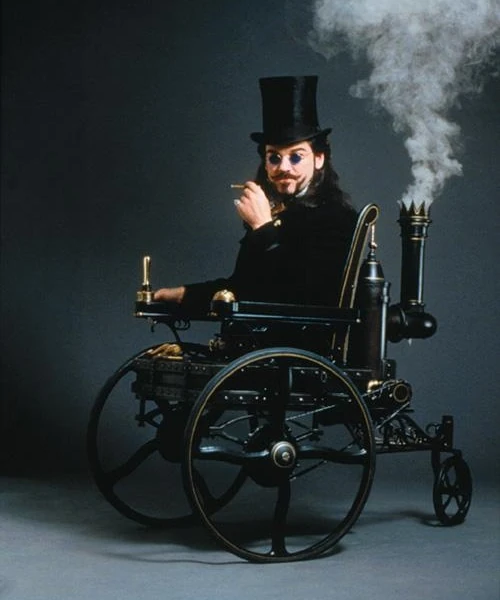Monday, 28 October 2019
Umberto Eco on Interpretation and Over-interpretation: A Summary
Overview
Interpretation and History
Overinterpreting Texts
Between Author and Text
References
Sunday, 15 September 2019
Chitty Chitty Bang Bang (or the narcissism of Caractacus Potts)
Chitty Chitty Bang Bang is a film about a father of two young children whose mother has died. The father, Caractacus Pott, (Dick Van Dyke), is an apparently independently wealthy inventor who doesn't believe in playing by the rules - although he is not rich, he wouldn't consider working for anybody else, and owns property and some land in an unspecified idyllic village, for example).
The Potts children (Jeremy and Jemimah) don't go to school - that would run contra to Pott's fiercely independent streek. He prefers for them to learn through play. He does not homeschool them; rather, they run about unsupervised... left to their own devices.
One day they encounter Truly Scrumptious (the female character who will eventually become their surrogate mother) . Scrumptious is appalled that Potts lets his children runaround unsupervised, and she is fearful for their safety when she nearly runs them over. The father however has no such concerns. He believes that a little danger is no bad thing in a child's upbringing and that they will learn to care for themselves rather than being suffocated by a mollycoddling nanny State.
Scrumptious and Potts become friends and take the children to the beach. From this point on on Chitty Chitty Bang Bang is a dreamlike fantasy. Scrumptious learns that, far from being the uncaring father that she assumed him to be, Potts is a deeply devoted parent. He has endless patience, time and love for his children. They learn through imaginative play with him. For example, they fantasize about seeing a pirate ship just off the coast. The idyllic world of learning through play quickly becomes darker, when they travel to the land of Vulgaria where a mad ruler, Baron Bomburst, has banned children, so that he alone can have all the toys.
Bomburst employees a sinister Child Catcher who runs around imprisoning children in a cage on the back of his cart.
The film concludes when the Potts family join forces with a toymaker (Benny Hill) to free all the children imprisoned by the Baron and fly home in their magical flying car.
It is noteworthy that the evil child-snatching baron story is Potts' invention. The Child Catcher personifies Potts' fear of losing his children, just as he has lost his wife. The Child Catcher is the darker side of Potts' personality. Far from rescuing his children from the boredom of a life at school, he is like a narcissist who wants to keep his children close, to serve his own ends. Their infantile fascination with his many failed or commercially unviable inventions makes him feel important and provides him with an audience 24/7. As is common with people suffering from narcissistic personality disorder, his children really serve to make him feel more important and to alleviate his fear of being left alone. At the same time, paradoxically, he is far from over-protective. Once the children are out of sight, they are out of mind and only of interest to their father once he has need for their attention.
Therefore, Chitty Chitty Bang Bang can be read as a warning about the potentially self-serving motives behind home schooling.
Thursday, 1 August 2019
Steam Punk & Colonial Nostalgia
 |
| Asylum Steampunk Festival (Lincoln 2019) |
If you walk around the streets of Lincoln during the annual Asylum Steampunk Festival (the largest and longest running steampunk festival in the world), you will hear that the steampunks – easily identifiable by their dress – speak in many different languages. While the appeal of steampunk has certainly broadened its horizons, one cannot help but feel that it is most warmly received by white Europeans, nostalgic for empire.
Clad in pith helmets, these intrepid explorers lament that America has overtaken the European powers to become the dominant global superpower. Steampunks long for a return to the good old days of European supremacy that were only ever possible because of colonisation. Steampunk as a fantasy where Europeans continue to dominate the world using (new) pre-digital technologies. Outsourcing labour leaves Europeans with a nostalgia for the days when they could actually make and repair things. Nostalgia is evident in the dressing up (not just literature) – people want to have a go at living this alternative reality. |
| Dr Arliss Loveless |
Ideology
Ideology
Žižek takes Marx's conception of ideology and combines it with Lacan's psychoanalytic theory. For Lacan, we do not intact with the world as such, but with linguistic representations of the world.


























